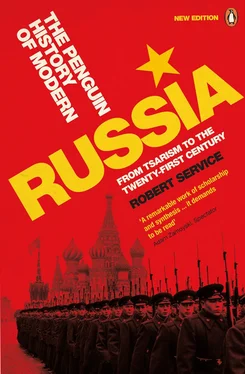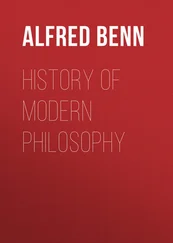Workers in most places desisted from outright violence. But there were exceptions. Unpopular foremen in several Petrograd factories were tied up in sacks and paraded around their works in wheel-barrows. 25Some victims were then thrown into the icy river Neva. Violence occurred also in the Baltic fleet, where several unpopular officers were lynched. Such was the fate of Admiral Nepenin in Helsinki. The dissatisfaction with the old disciplinary code made the sailors indiscriminate in this instance; for Nepenin was far from being the most authoritarian of the Imperial Navy’s commanders. Most crews, at any rate, did not resort to these extreme methods. In both the Imperial Army and Navy the tendency was for the men to restrict themselves to humiliating their officers by behaviour of symbolic importance. Epaulettes were torn off. Saluting ceased and the lower ranks indicated their determination to scrutinize and discuss instructions from above.
The defiant mood acquired organizational form. Workers set up factory-workshop committees, and analogous bodies were established by soldiers and sailors in military units. The committees were at first held regularly accountable to open mass meetings. A neologism entered Russian vocabulary: mitingovanie . If a committee failed to respond to its electors’ requests, an open meeting could be held and the committee membership could straightaway be changed.
The example set by workers, soldiers and sailors was picked up by other groups in society. The zeal to discuss, complain, demand and decide was ubiquitous. People relished their long-denied chance to voice their opinions without fear of the Okhrana, and engaged in passionate debate on public policy and private needs. Indeed politics embraced so large an area that the boundary disappeared between the public and private. Passengers on the trains of the Trans-Siberian railway to Vladivostok elected carriage councils (‘soviet’!). They did this not out of ideological fanaticism but from the consideration that the train would need to pick up and distribute food on the journey. Each carriage needed to ensure it received its fair share. Thus the practical requirements of subsistence were in themselves a stimulus to popular participation.
The country’s cultural customs also had their effect. The village land communes of Russia and Ukraine had traditionally enabled peasants to speak their mind on questions of local importance. This practice had been transmitted to those many industrial workers who hired themselves to factories not as individuals but as members of work-groups ( arteli ); and soldiers and sailors operated in small units under their terms of service. The apparent ‘modernity’ of politics in 1917 had a past which stretched back over centuries.
The various sectional groups became more assertive after perceiving the cabinet to be tardy in holding elections to a Constituent Assembly. In the absence of an elected government, it was every group for itself. Employers regarded ‘wheel-barrowing’ as the beginning of a Red Terror. They were over-reacting. But there was realism in their claim that the militance of the workers was having a deleterious impact on the economy. Strikes undoubtedly lowered productivity. Even more alarming to owners in Petrograd, from May 1917 onwards, were the instances of factory-workshop committees instituting ‘workers’ control’ over the management of enterprises. 26This was direct action; it was no longer merely forceful lobbying: managers were not allowed to do anything that might incur the disapproval of their work-force. Such a turnabout had its rural equivalent. Already in March there were cases of peasants seizing gentry-owned land in Penza province. Illegal pasturing and timber-felling also became frequent. 27
The middle classes, dismayed by what they saw as the cabinet’s indulgence of ‘the masses’, contributed to the embitterment of social relations. They, too, had an abundance of representative bodies. The most aggressive was the Petrograd Society of Factory and Works Owners, which had encouraged a series of lock-outs in the capital in summer 1917. 28Nor was the atmosphere lightened by the comment of the Moscow industrialist P. P. Ryabushinski that only ‘the bony hand of hunger’ would compel workers to come to their senses. Even the owners of rural estates were bestirring themselves as their Union of Landowners campaigned against peasant demands in the countryside.
Yet not only did few gentry owners live on their estates but also none of them dared to attempt the sort of open challenge to ‘the masses’ delivered by the capital’s industrialists. Instead they tried to recruit the richer peasants into the Union of Landowners. 29In reality it would have made little difference if they had succeeded in expanding their membership in this fashion. For the influence of any given class or group depended on its ability to assemble cohesive strength in numbers in a given locality. Not even the Petrograd industrialists maintained their solidarity for very long; and this is not to mention the chaotic rivalries across the country among the industrialists, financiers and large landowners. Demoralization was setting in by midsummer. Savings were expatriated to western Europe; the competition for armaments-production contracts slackened; the families of the rich were sent south by fathers who worried for their safety.
Their concern had been induced by the somersault in social relations since February 1917, a concern that was also the product of the collapse of the coercive institutions of tsarism; for the personnel of the Okhrana and the local police had been arrested or had fled in fear of vengeance at the hands of those whom they had once persecuted. The provincial governors appointed by Nicholas II were at first replaced by ‘commissars’ appointed by the Provisional Government. But these commissars, too, were unable to carry out their job. What usually happened was that locally-formed committees of public safety persuaded them to stand down in favour of their recommended candidate. 30
The main units of local self-assertion were the villages, the towns and the provinces of the Empire. But in some places the units were still larger. This was the case in several non-Russian regions. In Kiev a Ukrainian Central Rada (or Council) was formed under the leadership of socialists of various types; and, at the All-Ukrainian National Congress in April, the Rada was instructed to press for Ukraine to be accorded broad powers of self-government. The same idea was pursued by the Finns, whose most influential party, the social-democrats, called for the Sejm (parliament) to be allowed to administer Finland. Similar pressure was exerted from Estonia — which had been combined into a single administrative unit by the Provisional Government itself — and Latvia. In the Transcaucasus the Provisional Government established a Special Transcaucasian Committee; but the Committee operated under constant challenge from the socialist parties and soviets established by the major local nationalities: the Georgians, Armenians and Azeris. 31
Among these various bodies, from Helsinki in the north to Tbilisi in the south, there was agreement that their respective national aspirations should be contained within the boundaries of a vast multinational state. Autonomy, not secession, was demanded. The country was no longer officially described as the Russian Empire, and even many anti-Russian nationalist leaders were reluctant to demand independence in case this might leave them defenceless against invasion by the Central Powers.
The peoples in the non-Russian regions were typically motivated less by national than by social and economic matters. 32The demand for bread and social welfare was general, and increasingly there was support for the slogan of peace. Furthermore, peasants were the huge majority of the population in these regions and nearly all of them favoured parties which promised to transfer the agricultural land into their keeping. Georgians, Estonians and Ukrainians were united by such aspirations (and, of course, the Russian workers, peasants and soldiers shared them too). The problem for the Provisional Government was that the Rada, the Sejm and other national organs of self-government among the non-Russians were beginning to constitute a tier of unofficial regional opposition to policies announced in Petrograd.
Читать дальше












